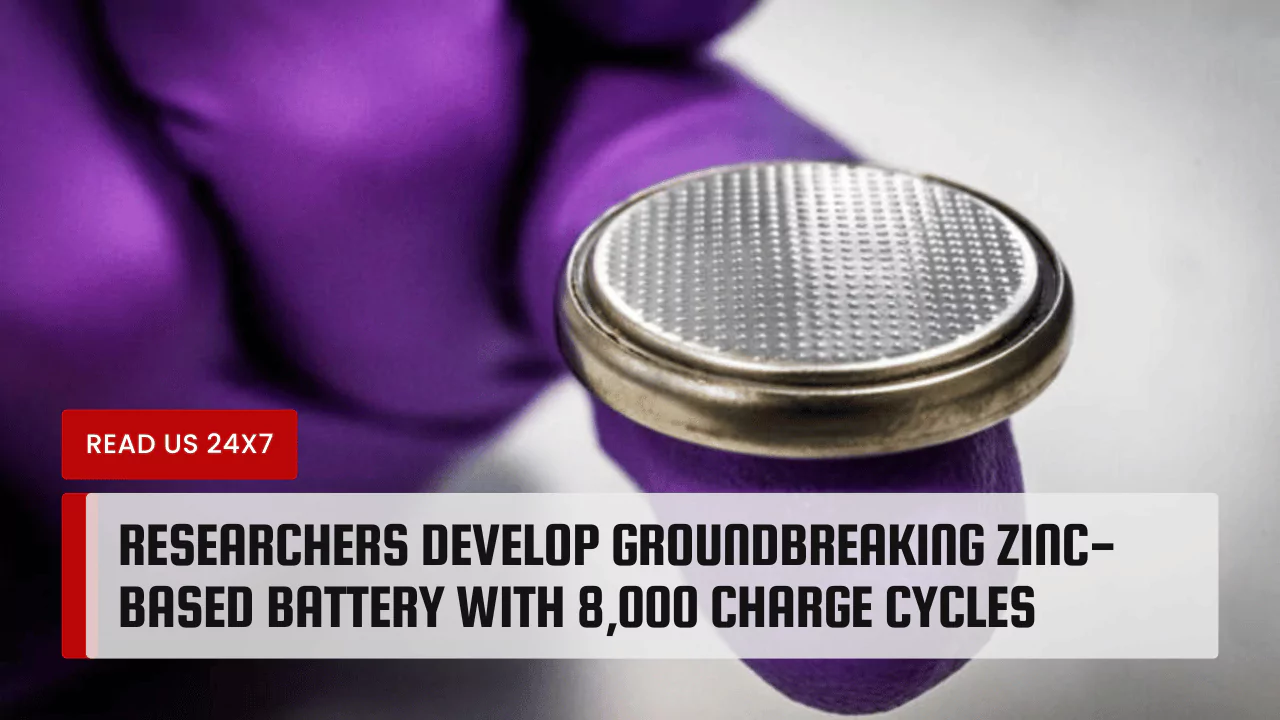In a significant breakthrough, a team of researchers from Linköping University, Karlstad University, and Chalmers University in Sweden has developed a revolutionary zinc-based battery capable of enduring an impressive 8,000 charge cycles. Unlike conventional zinc-based batteries that discharge within a few hours, this newly developed battery can retain its charge for up to a week, marking a substantial advancement in energy storage technology.
Challenges with Lithium Batteries
Lithium batteries, particularly lithium-ion batteries, have revolutionized the way we store and use energy, especially in portable electronics and electric vehicles. However, they come with several challenges that need to be addressed:
- Environmental Impact: The extraction of raw materials like lithium and cobalt for these batteries requires significant amounts of energy and water, which can have a detrimental effect on the environment.
- Ethical Concerns: Mining operations, particularly in countries like the Democratic Republic of Congo, have been associated with unsafe working conditions and child labor.
- Recycling Issues: Lithium batteries are complex and difficult to recycle efficiently. The current recycling processes are costly and result in low-value products.
- Safety Risks: Although relatively rare, lithium batteries can pose fire and explosion risks under certain conditions.
- Resource Scarcity: The high demand for materials like lithium and cobalt could lead to supply shortages, driving up costs and impacting the scalability of battery production.
- Technological Limitations: Some types of lithium batteries, like lithium-sulfur batteries, face issues such as low sulfur utilization, fast capacity fade, and short service life.
These challenges highlight the need for continued research and development in battery technology to find more sustainable, ethical, and efficient solutions for energy storage. The zinc-based battery with 8,000 charge cycles mentioned earlier is an example of such innovation, aiming to overcome some of these limitations.
Eco-friendly and Affordable Battery Developed
In response to these challenges, the collaborative effort led by Swedish researchers turned to zinc and lignin, a byproduct of the paper industry, to develop an eco-friendly and cost-effective alternative to lithium-ion batteries. This innovative battery solution offers several advantages:
- Composition: The battery is composed of zinc and lignin, both of which are abundantly available and inexpensive materials. This composition not only reduces production costs but also minimizes reliance on rare or environmentally harmful resources.
- Durability: Unlike traditional zinc-based batteries that suffer from rapid discharge rates, the newly developed battery boasts exceptional durability, capable of enduring over 8,000 charging cycles without significant degradation in performance. This longevity ensures prolonged use and reduced frequency of battery replacements, contributing to overall cost savings and sustainability.
Potential Benefits of the New Battery
The introduction of this groundbreaking battery technology holds the promise of several potential benefits:
- Lower Cost of Power: With its low production costs and extended lifespan, the zinc-based battery offers a more economical energy storage solution compared to conventional lithium-ion batteries. This affordability makes renewable energy storage more accessible to a wider range of consumers, including those in low-income communities.
- Increased Accessibility for Low-Income Countries: The affordability and sustainability of the zinc-based battery make it an ideal energy storage solution for low-income countries seeking to adopt renewable energy technologies. By providing a cost-effective alternative to lithium-ion batteries, this innovation can facilitate the transition to clean energy sources and enhance energy access in underserved communities.
- Reduced Environmental Impact: By utilizing readily available and recyclable materials such as zinc and lignin, the new battery significantly reduces its environmental footprint. Additionally, its long lifespan and efficient recycling process contribute to a more sustainable approach to energy storage, mitigating the environmental impact associated with traditional battery technologies.
Future of Battery Technology
While the development of the zinc-based battery represents a significant milestone in energy storage innovation, the quest for more sustainable and efficient battery technologies continues. Researchers are exploring alternative solutions such as solid-state batteries, which offer enhanced safety and energy density compared to conventional lithium-ion batteries. Continued investment in research and development is essential to driving further advancements in battery technology and achieving a more sustainable energy future.
Reference:https://liu.se/en/news-item/miljovanligt-och-billigt-batteri-for-laginkomstlander


